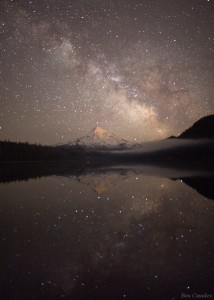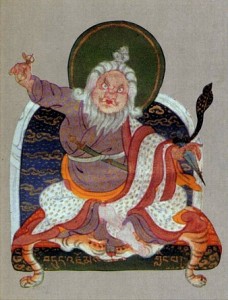
The following is respectfully quoted from “Buddhahood Without Meditation” by Dudjom Lingpa:
On yet another occasion, when I met the great holder of intrinsic awareness, Hungchenkara, in a vision, I asked him, “What is this array of apparent phenomena like?”
He bestowed the following reply: “Ah, great spiritual being, the consciousness of the five avenues of the senses are like space in which anything is capable of emerging. Discursive thought is like the substances and mantras employed by a magician. The array of apparent phenomena that manifests from the synchronicity of these two comes about like a magical illusion. Consciousness that perpetuates this is like a spectator.
“This being the case, all substances offered or given are like substances used in magic. The approach of the illusion-like yoga involves using purificatory mantras to refine these substances into emptiness and mantras for increase to cause the unfolding of immeasurable appearances of sensory pleasures, which become objects of the six senses to delight all who are recipients of these offerings and gifts. Further, for the sake of sentient beings, who are like phantom emanations, through the illusion-like yoga one arranges the objective environment like a city of the gandharvas. One performs the acts of liberating and guiding beings as though changing the contents of a dream, thus gaining mastery over the supreme yoga of illusion.
“Consider the fact that no matter how many planets and stars are reflected in a lake, these reflections are encompassed within the water itself; no matter how many worlds there are as containers and their contents, they are encompassed within a single space; no matter how vast and how numerous the apparent phenomena of samsara and nirvana may be, they are encompassed within the single true nature of mind itself (sem-nyid).
“The nature of mind itself, referred to as ‘buddha nature,’ is a uniform pervasiveness unsullied by flaws. For example, even though there might be buddhas filling space, there is a uniform pervasiveness in that no object exists that benefits from their pristine awareness and positive qualities. Even though there might be sentient beings equal to the limits of space, each with an autonomous mindstream, there is a uniform pervasiveness in that no object exists that can be harmed by this.
“The ground aspect of dharmakaya as buddha nature is free of all locations, objects or agents of origination, and so is free of the limitation of origination. It is beyond there being any time at which it ceases or any agent that ceases to be, and so it is free of the limitation of cessation. Because it does not fall into the extreme of existence as some substantial entity, since even the eyes of a victorious one cannot see it, it is free of the limitation of permanence. Since it is nonexistent without being absolutely nothing and constitutes the common ground of samsara and nirvana, it is free of the limitation of nihilistic negation. Since it is beyond all locations, objects or agents of going, it is free of the limitation of going. Because no location, object or agent of coming can be established to exist, it is free of the limitation of coming. Because all phenomena of samsara and nirvana arise distinctly and individually within the vast expanse of the ground of being, or buddha nature, like the planets and stars reflected in a lake, it is free of the limitation of identity. Because the modes of samsara and nirvana, however they arise, are of one taste with the same ground of being, or buddha nature, just as the planets and stars reflected in the ocean are none other than the ocean, it is free of the limitation of separateness. Because it does not fall into any of these eight limitations of conceptual elaboration, there is a uniform pervasiveness unsullied by flaws.”



